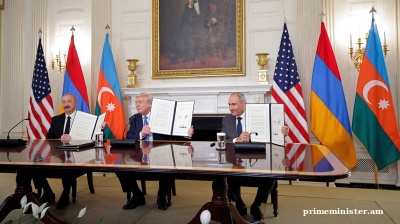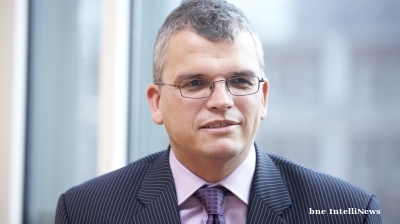Since the spring of 2014, Russia has handed out nearly 200,000 Russian passports to Ukrainians living in the Donbas and Luhansk “People’s Republics.” Although Moscow maintains that this is a “practical measure” motivated by humanitarian concerns, Kyiv considers it a further violation of Ukraine’s state sovereignty.
According to researcher Fabian Burkhardt, Moscow’s “passportization” efforts in Donbas are not only “part of a tried and tested set of foreign policy instruments,” but also a deliberate effort to create “controlled instability” in the region. “Russia wants to secure permanent influence over the two separatist territories without directly seeking annexation,” he explains.
As a geopolitical strategy, handing out Russian citizenship allows the Kremlin to “exert permanent pressure” on the authorities in Kyiv without any military escalation. This, in turn, “torpedoes the Minsk peace process,” while “the delay in conflict resolution contributes to making Russia comparatively more attractive as a country of emigration for Ukrainians.”
In other words, Russia’s “passportization” efforts seek to address a persistent domestic problem, as well. “The Donbas conflict area serves as a source of migration for counteracting, in the long term, both Russia’s population decline and shortages in its labour market,” Burkhardt explains.
As such, Burkhardt argues that both Ukraine and its international partners should respond by taking a critical look at their own policies towards the civilian population living in the Donbas. The EU and its member states should be playing a larger humanitarian role in the region, he says, in addition to recognizing their own contributions to population decline across Ukraine.
“The EU should also encour¬age Ukraine to implement existing plans to simplify crossing of the Line of Contact in the wake of the pandemic, to reduce bureaucracy in processing documents and using social assistance,” Burkhardt concludes. “The isolation of the [non-government controlled areas] caused by Covid-19 is a massive factor in [government-controlled] Ukraine’s alienation from them, which inevitably increases Russia’s influence.”
Opinion

Europe faces harsh realities in Ukraine as long war looms - Ash
Timothy Ash, senior sovereign strategist at BlueBay Asset Management in London, says European policymakers are belatedly waking up to the fact that the war in Ukraine is set to be prolonged — and that they alone may have to foot the bill.

COMMENT: US-brokered Armenia-Azerbaijan peace deal exposes Russia’s strategic failures
The recent peace breakthrough between Armenia and Azerbaijan is a major diplomatic win for the United States and a setback for Russia, according to a new report published by the Atlantic Council.

COMMENT: Why Beijing will never take Taiwan
Xi Jinping needs to think again before he sends so many young Chinese men and women to their deaths on Taiwan, for if the PLA does one day dare to land, they will be buried here.

COMMENT: Ukraine’s coming financial storm
“A crisis is drawing ever closer. It will break in Ukraine, but it won’t begin on the frontlines, where the country’s battle-weary brigades continue to impose a brutal cost on the Russian invader," writes Timothy Ash of BlueBay Asset Management.



